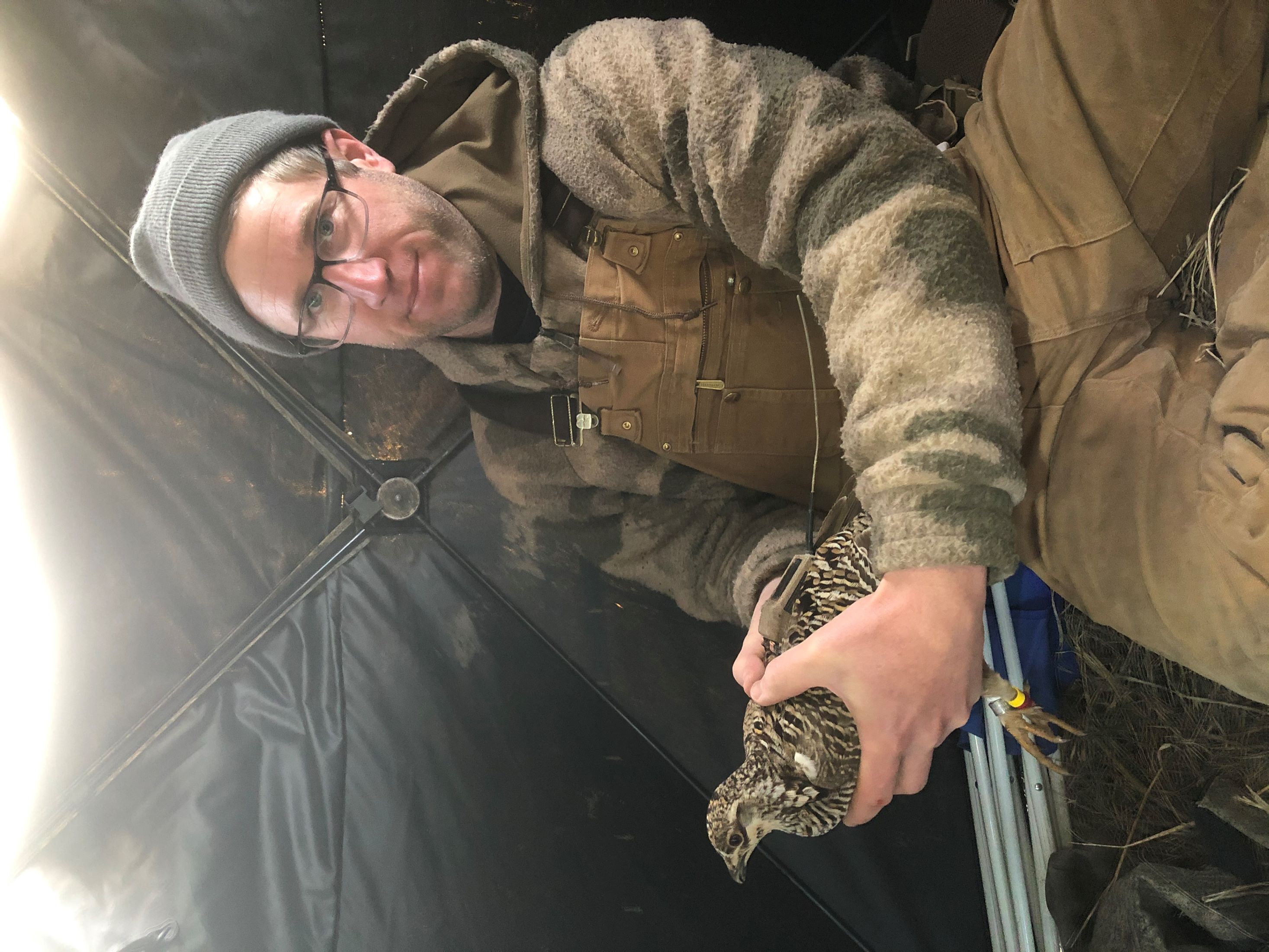Faculty and Staff
 Dr. David Haukos
Dr. David Haukos
Unit Leader
Associate Professor, Division of Biology
204 Leasure Hall
(785) 532-5761
dhaukos@ksu.edu
Ph.D. Wildlife Science, Texas Tech University, 1991
M.S. Wildlife Science, Texas Tech University, 1988
B.S. Wildlife and Fisheries Science, South Dakota State University, 1986
Dr. David A. Haukos is the Unit Leader and Associate Professor in the Division of Biology. He received his Ph.D. in Wildlife Science from Texas Tech University in 1991. His research efforts focuson the effects of environmental and habitat changes on wildlife populations. By extension, such changes are assessed in regard to delivery of ecological goods and services. His primary focus is on wetland habitats especially High Plains playas, Gulf coastal marshes, and western riparian areas, with additional investigations in prairie ecosystems. He principally concentrates on the influence of habitat quality and quantity on population dynamics of migratory waterbirds, prairie grouse, and grassland passerines. Of particular interest is the role of wintering and migratory stopover locations in future reproductive success of migratory birds, which includes assessment of cross-seasonal effects and multi-spatial scale modeling. In addition, he is involved in long-term development and assessment of novel models for environmental education.
 Dr. Martha Mather
Dr. Martha Mather
Assistant Unit Leader - Fisheries
Professor, Division of Biology
204B Leasure Hall
(785) 532-6522
mmather@ksu.edu
Ph.D. Zoology, The Ohio State University, 1990
M.S. Zoology, The Ohio State University, 1985
B.S. Biology, Denison University, 1978
Dr. Martha Mather is the Assistant Unit Leader-Fisheries and Associate Professor in the Division of Biology. Her research program is focused on fish ecology that addresses applied problems. Specifically, problems related to the ecology of anadromous fish, processes that structure estuarine fish communities, how to use community ecology to devise fish sampling regimes that aid conservation, and integrated bio-social approaches to natural resource conflicts. These four topic areas fall under the overarching programmatic themes of applied aquatic ecology and how interdisciplinary approaches can be applied to natural resource problems. Conceptually, these topic areas are approached within these broader thematic areas by addressing the conceptual issues of how abiotic and biotic factors drive animal distribution and abundance, variations in patterns and processes across systems and through time, and the role of human impacts.

Dr. Daniel Sullins
Assistant Unit Leader - Wildlife
Assistant Professor, Division of Biology
204C Leasure Hall
(785) 532-6615
sullins@ksu.edu
Ph.D. Biology, Kansas State University, 2017
M.S. Forestry with Minor in Spatial Science,
Stephen F. Austin State University, 2013
B.S. Wildlife and Fisheries Science, Texas A&M University, 2008
Dr. Daniel Sullins is the Assistant Unit Leader - Wildlife and Assistant Professor in the Division of Biology. He received his Ph.D. in Biology from Kansas State University in 2017. His research interests revolve around understanding how birds use and select resources that vary over space and time and focusing on how the quantity and quality of those resources affect avian populations. The main themes of his research include conservation of avian species throughout their annual cycle, landscape and temporal effects on population occupancy and space use, and linking resource availability and selection with demographic consequences.
Liam Berigan
Post-doctoral Research Associate
berigan@k-state.edu
Camille Rieber
Post-doctoral Research Associate
cjrieber@ksu.edu
Tara Dreher
Office Specialist
205 Leasure Hall
(785) 532-6070
tldreher@ksu.edu